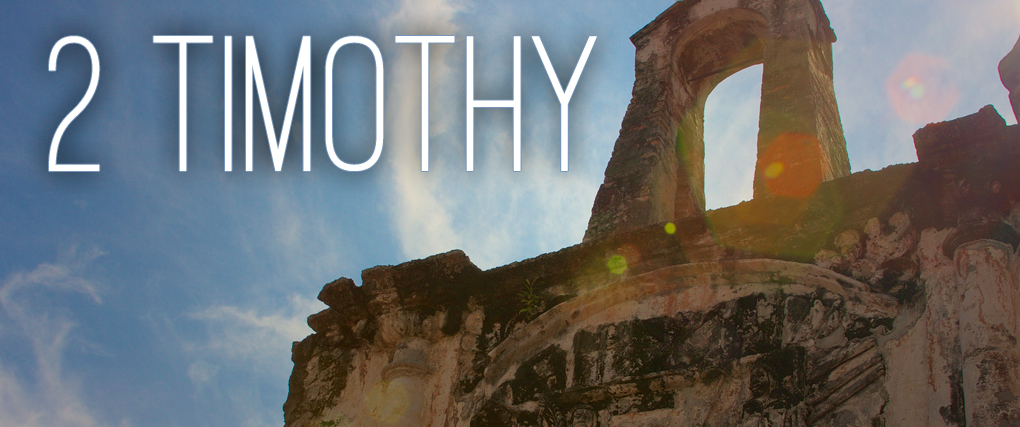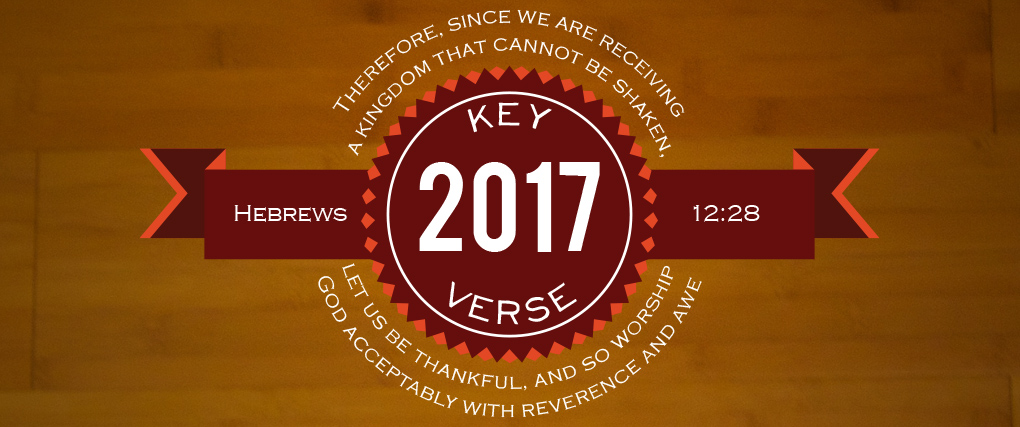Date: Jun. 4, 2017
Hebrews 12:18-29
Key Verse: Hebrews 12:28
“Therefore, since we are receiving a kingdom that cannot be shaken, let us be thankful, and so worship God acceptably with reverence and awe,”
In last week’s passage, we thought a lot about discipline. How our fathers disciplined us when we were children and how the Lord discipline’s us throughout our lifetime. No discipline is fun while you’re in the midst of it. If you do enjoy it, there might be something wrong with you. And as we saw through the passage, usually there are only two results that happen with discipline, either we are trained and blessed through it or we are not. There are many examples we can take a look at. Let’s look at an example from the Star Wars movie series with characters: Obi Wan Kenobi and Anakin Skywalker. Both of them received discipline during their Jedi training. Obi Wan accepted his discipline and benefited from it. He was able to control his emotions and he was a successful Jedi. Anakin however, resented the discipline he received and he grew more and more bitter through it. Over the course of time, he was un-able to control his anger and eventually he turned to the dark side. Being undisciplined, his anger raged into hate to the point he murdered all the young Jedi. Although this is an extreme case we can see how important our response to discipline is. And this is what today’s passage is about. We’ll take a closer look at why it’s good to accept God’s discipline and how we can be discipled through it.
Our passage this morning starts with verses 18-21. The context that we receive these verses is that they come right after hearing about how Esau came to his senses, after he despised his birthright, and wanted to get the blessing back, but he couldn’t undo what he had done even though he sought it desperately with tears. By that time, it was too late, his rejection of God could not be undone. The author of Hebrews is giving the readers a warning, please be careful, think about what you’re doing BEFORE you do it because there are ALWAYS consequences to our actions. And Esau stands as a reminder of what happens when we reject God.
In our passage, we are presented with two different responses, or views, or pictures of how we see God. And the author uses Israel’s history to describe these pictures in the hopes that they would get a better understanding. The first view is in verses 18-21 and the second view is in verses 22-24. Let’s take a look at verses 18-21. “18 You have not come to a mountain that can be touched and that is burning with fire; to darkness, gloom and storm; 19 to a trumpet blast or to such a voice speaking words that those who heard it begged that no further word be spoken to them, 20 because they could not bear what was commanded: “If even an animal touches the mountain, it must be stoned to death.” 21 The sight was so terrifying that Moses said, “I am trembling with fear.”” The author is taking his readers back to a time in Israel’s history when God first introduced himself at Mt Sinai with fire, smoke, thunder and lightning. At that meeting, the Israelites were trembling with fear. They had fled Egypt and were meeting God for the first time. It was an intense meeting, (first impressions are important right) all the Israelites were told to stay back from the mountain, for it anything touched the mountain, even it was just the foot, it would be killed. The mountain top was covered in a thick dark cloud. Thunder and lightning erupted followed by a loud blast of a trumpet. “Mt Sinai was covered with smoke, because the Lord descended on it in fire. The smoke billowed up from it like smoke from a furnace, and the whole mountain trembled violently. 19 As the sound of the trumpet grew louder and louder, Moses spoke and the voice of God answered him.” (Ex 19:18) When the people saw the awesome power of God, all of them trembled in fear including Moses. When the people experienced God in this way, they had respect for him and they followed his direction because they didn’t want to die.
This represents the first viewpoint, or picture of God. And a lot of people these days have this view of God. They see God at this powerful being that is full of vengeance, destruction, terror, who is violent, mean and authoritative. And that he enjoys making people fearful by surrounding them in darkness and violently shaking them and threatening them with fire if they don’t obey his commands. This scene kind of reminds me of Mt Doom from the Lord of the Rings movie where a volcano is erupting, everything is dark, dirty and depressing. They see God as a grumpy old man sitting on the throne in heaven shouting out orders with a powerful voice demanding our obedience under threat of punishment and death. These days I see this kind of view of God all over the place. All the time in the comment section of articles. This is how one celebrity described God even though she grew up as a pastor’s kid. Recently I came across a blog where the author had a similar view and because of it, he rejected God and wants to redefine him in a way that he likes better.
Now the second viewpoint or picture of God is found in verses 22-24. “22 But you have come to Mount Zion, to the city of the living God, the heavenly Jerusalem. You have come to thousands upon thousands of angels in joyful assembly, 23 to the church of the firstborn, whose names are written in heaven. You have come to God, the Judge of all, to the spirits of the righteous made perfect, 24 to Jesus the mediator of a new covenant, and to the sprinkled blood that speaks a better word than the blood of Abel.” This is a very different picture of God. This was also something the readers would be familiar with for Zion was the city of David. This is not a lonely, dark, fearful mountain but a shining, joyful, vibrant city. This was the heavenly Jerusalem where there is not death only life. It is cheerful and full of hope. This gives me a picture of a calm sunny summer day full of peace and relaxation. And what a beautiful community we are welcomed into. There are thousands upon thousands of joyful angels and the amazing heros of faith, all those who believed in Jesus and trusted in God. And at the center of it is our Creator God and Jesus our precious mediator. A mediator is the one who brokers peace between two parties. And this is exactly what Jesus did when he shed his blood on the cross for us. Because of Jesus’ sacrifice, he opened the way for all those who repent of their sin and believe in him we can have eternal life. Jesus’ blood stands in stark contrast to Abel’s blood. For Abel’s blood called for justice or revenge, but Jesus’ blood calls for grace and forgiveness.
There we have the two-different views of who God is. He is the same god, he hasn’t changed, however how we view him can change depending on how we respond to his discipline. And since the passage mentioned Abel, I think his story reveals the essence of this passage. A couple of weeks ago Dan mentioned Cain and Abel. Their story can be found in Genesis 4. Can and Abel were brothers born to Adam and Eve. In the course of time, both of these brothers brought offerings to God. Abel brought offerings from the first born of his flock while Cain brought leftovers from his crops. The Lord liked what Abel brought, but didn’t like what Cain brought. This made Cain angry. When God saw the look on Cain’s face he asked him, “Why are you angry? Why is your face downcast? 7 If you do what is right, will you not be accepted? But if you do not do what is right, sin is crouching at your door; it desires to have you, but you must rule over it.” (Ge 4:6) We could kind of think of this as the Lord’s discipline to help Cain in this situation. This was a critical point in Cain life, had to make a decision. What’s his response going to be when the Lord says, “What you’re doing is not right”? Cain was at a crossroad, either he could choose to accept God’s rebuke or to reject it. This would ultimately become a defining point in Cain’s life. Let’s see Cain’s response, “Now Cain said to his brother Abel, “Let’s go out to the field.” While they were in the field, Cain attacked his brother Abel and killed him.” (Ge 4:8) Cain’s response to God’s rebuke was to kill his brother. What had Abel done to him? Cain was not disciplined to control his emotions and he reacted in anger and did something he would regret for the rest of his life. God knew what had happened but he wanted to give Cain the opportunity to repent for what he had done so God approached Cain. 9 Then the Lord said to Cain, “Where is your brother Abel?” “I don’t know,” he replied. “Am I my brother’s keeper?” Let me ask you, at this point which view do you think Cain has of God, the view of Mt. Doom or the view of Mt. Zion? Obviously, he has rejected God and his view is that of Mt. Doom. Now look at how God responds. 10 The Lord said, “What have you done? Listen! Your brother’s blood cries out to me from the ground. 11 Now you are under a curse and driven from the ground, which opened its mouth to receive your brother’s blood from your hand. 12 When you work the ground, it will no longer yield its crops for you. You will be a restless wanderer on the earth.” (Ge 4:10-12) The Lord’s discipline is an opportunity for us to repent and learn from our mistakes.
The author of Hebrews understands this and so he makes this impassioned plea to his readers, take a look at verses 25-27. “See to it that you do not refuse him who speaks. If they did not escape when they refused him who warned them on earth, how much less will we, if we turn away from him who warns us from heaven? 26 At that time his voice shook the earth, but now he has promised, “Once more I will shake not only the earth but also the heavens.” 27 The words “once more” indicate the removing of what can be shaken—that is, created things—so that what cannot be shaken may remain.” Through these verses the author is urging us to listen to God’s gracious words. If those who ignored earthly warnings didn’t get away with it, what will happen to us if we turn our backs on heavenly warnings? God’s voice shook the earth to its foundations that time, this time he’s told us quite plainly that he’ll also rock the heavens one last time from top to bottom. And when he says “one last shaking” he means he’s going to do a thorough housecleaning to get rid of all the historical and religious junk so that all the unshakable essentials stand clear and uncluttered.
Our response to discipline, especially the Lord’s, is the most important thing we have. We don’t always have control over our situation, but we do have control over our reaction and that’s what matters. So many times in football, (or any sport for that matter) a player’s reaction is what draws the penalty. One player will do something to another player that they shouldn’t have done. And the other player reacts by retaliating against his opponent. And it’s usually that reaction that the referee sees and penalizes. God didn’t punish Cain for bringing a bad offering, however God didn’t punish Cain for his reaction to God’s discipline. Through Mike’s message last week, he encouraged us to react to God’s discipline by trusting in the Lord and have faith in God. But how can we do that when we are in the midst of the situation? As I mentioned in the beginning, no one like discipline, and if you do, you may be crazy. So what can we do? Philippians 4:6-7 may help us during these periods. “6 Do not be anxious about anything, but in every situation, by prayer and petition, with thanksgiving, present your requests to God. 7 And the peace of God, which transcends all understanding, will guard your hearts and your minds in Christ Jesus.” Through these verses when we are under stress, we can reach out to our heavenly Father, through prayer and ask for his help. And in his grace, he will give us peace even in the midst of that situation. God may not change our situation but he will change us in the middle of it and this gives glory to God. Yesterday I came across this cartoon that helps describe our life on earth. In it we see a man trying to put his life together, and he complaining, “Why can’t I get this together?” and his wife offers him a Bible saying, “Why don’t you try reading the instructions!” and the caption below is from Proverbs 3:5-6, “Trust in the Lord with all your heart and lean not on your own understanding; in all your ways submit to him, and he will make your paths straight.” If we are in the midst of the Lord’s discipline or in the middle of a difficult situation, the thing to do is seek the Lord and ask him for wisdom and guidance and he will help us.
The author gives us his conclusion in verses 28-29. “Therefore, since we are receiving a kingdom that cannot be shaken, let us be thankful, and so worship God acceptably with reverence and awe, 29 for our “God is a consuming fire.”” This is the climax of the book of Hebrews. As we go through life, there are times we may need discipline, when this happens, we should not look at God like Mt. Doom, as a cruel taskmaster who only wants to crush us but like Mt. Zion because he is preparing us to enter the Kingdom of God. We should be thankful, not because we like discipline, but because God cares for us like his children. And he will give us a kingdom that cannot be shaken. God love for us is enormous and sometimes it’s tough love, but it’s all for our own good.
When I was young, my father disciplined me harshly. At least that’s the way I remember it. I’m sure that he was trying his best, but I didn’t see it. And for the longest time, I resented him for his punishment. Sure, I feared my father and most of the time I obeyed because of that fear but to my failure, I wasn’t really trained through it. Instead of producing good fruit, it hardened my heart. So instead of learning obedience, I became sneaky and did things behind his back. When I didn’t accept the discipline from my father, God took it upon himself to discipline me. Through the years, I have received God’s discipline in various ways. My reaction toward God has been mixed, sometimes I accepted his training, and sometimes I’ve been hard toward it. But I realize now, much later and after I’ve had kids of my own, that I discipline my kids for a purpose, to help them get better. I know that neither nor my father are anywhere close to perfect, but I believe that we try to do the best that we can. As a father, this passage gives me pause, because I should be doing my best to raise my kids and I hope that by the grace of God I am. I thank God for his word, I believe that it is a privilege to receive God’s wisdom and pray that I may accept his word into my heart and live according to it. I pray that God my bless all of you through his discipline and that you may receive it and be thankful and worship God with respect and awe.







